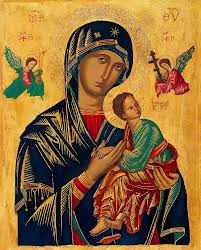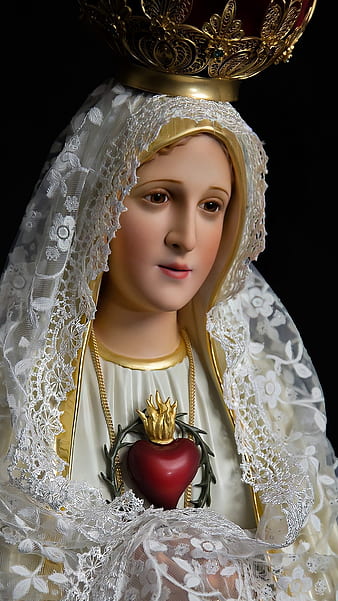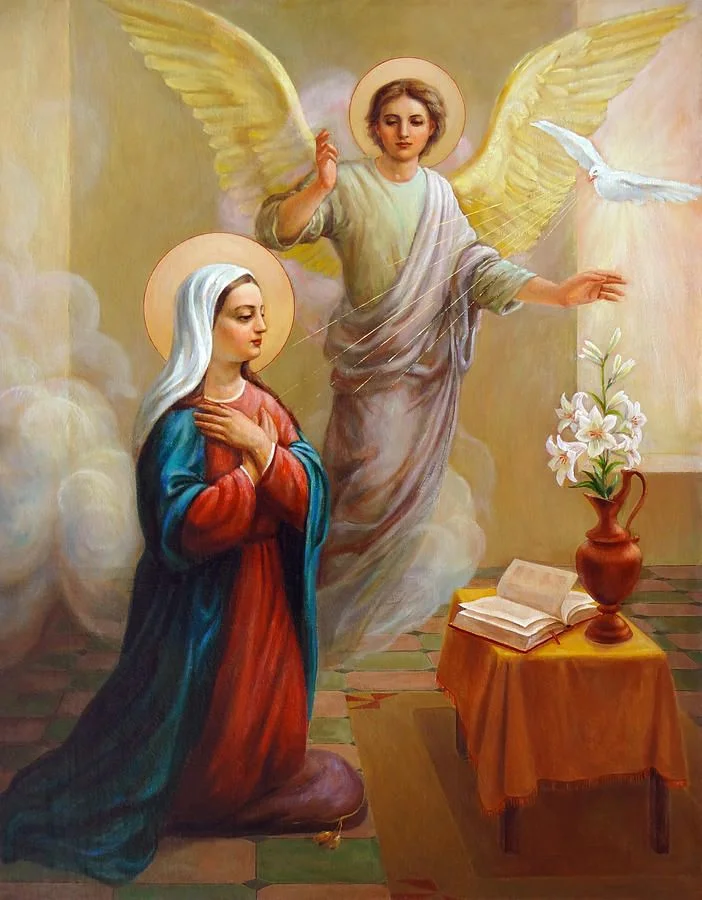The Theotokos and the Soteriological Framework: A Marian Christological Analysis
This essay examines the pivotal role of the Virgin Mary (Theotokos) within the Christian soteriological framework, employing theological principles and models to illuminate her significance. Key concepts such as soteriology (the study of salvation), Christology (the study of Christ), and Mariology (the study of Mary) will be explored, demonstrating their interconnectedness in understanding Mary's contribution to humanity's redemption. The analysis will move chronologically through key Marian events, interpreting them through established theological lenses.
- The Immaculate Conception and the Prevention of Original Sin: The doctrine of the Immaculate Conception, affirmed by the Catholic Church, asserts Mary's conception free from original sin (CCC 490-492). This concept, understood through the lens of prevenient grace, posits that God's grace prepared Mary as the worthy vessel to bear the Christ. This prevents the transmission of original sin, a critical element within the Augustinian understanding of humanity's fallen nature and need for redemption. In a real-world application, this highlights God's proactive intervention in the salvation narrative, initiating the process from its inception.
- The Annunciation and the Incarnation: The Annunciation (Luke 1:26-38), depicted through the visit of the Archangel Gabriel, marks the pivotal moment of the Incarnation. Mary's fiat ("let it be") signifies her complete surrender to God's will, thereby facilitating the union of the divine and human natures in Jesus Christ. This event underscores the centrality of Mary in the kenosis (self-emptying) of Christ, as defined in Philippians 2:5-11, a vital part of the atonement process. The theological principle at play here is the hypostatic union, where the divine and human natures of Christ are inseparably united in one person.
- The Perpetual Virginity and the Preservation of the Divine Lineage: The doctrine of Mary's perpetual virginity affirms her virginity before, during, and after the birth of Jesus (CCC 499). This theological aspect emphasizes the miraculous nature of the Incarnation and underscores the sacredness of Christ's lineage, preserving the purity of his divine nature from the taint of inherited human sinfulness. Applying this to a real-life context reinforces the idea of a divine plan that necessitates meticulous preservation of Christ’s divine identity.
- The Mother of God (Theotokos) and the Humanization of the Divine: Mary's title as Theotokos ("God-bearer") asserts her unique role in the Incarnation, emphasizing that she bore God in human form (John 1:14). This reinforces the fundamental truth of Christ's full divinity and full humanity, a crucial tenet of Chalcedonian Christology. The implications are profound, showcasing the accessibility of God through the human experience. It humanizes divinity in the most literal sense.
- Mary's Role in the Passion, Death, and Resurrection: Mary's presence at the foot of the cross (John 19:25-27) highlights her unwavering faith and compassion amidst suffering. Her participation in the redemptive act of Christ's sacrifice underscores her profound connection to the soteriological process. This perspective demonstrates the human element within the divine plan, where suffering and empathy are integral to redemption. The experience of loss and sorrow become a powerful testament to the shared human condition.
- Mary's Intercession and Mediation: Catholic theology emphasizes Mary's role as intercessor and mediatrix, acting as a conduit between humanity and God. This perspective, rooted in the concept of ecclesial solidarity, sees Mary as a model of prayer and devotion, guiding believers toward Christ. The real-life application of this concept finds expression in numerous prayers and devotional practices within Catholicism, demonstrating the practical impact of Mary’s spiritual role. This reflects a model of spiritual mentorship and guidance.
- The Assumption and the Glorification of Mary: The Assumption into heaven, body and soul (CCC 966), signifies Mary's ultimate victory over death and sin. This event, understood within the framework of eschatology (the study of end times), offers hope and reassurance to believers, demonstrating the possibility of ultimate union with God. Its impact provides comfort and hope to believers experiencing loss and grief, providing spiritual solace in challenging life moments.
- Mary as a Model of Faith and Obedience: Throughout her life, Mary exemplifies unwavering faith and obedience to God's will. Her response to the Annunciation serves as a paradigm for Christian discipleship, underscoring the importance of surrendering one's life to God’s plan. This aspect of Mary's life demonstrates a crucial pathway to spiritual maturity, offering a practical example of faith in action.
- The Rosary and Contemplative Prayer: The Rosary, a traditional Catholic prayer, provides a structured approach to meditating on the mysteries of Christ's life, emphasizing the presence of Mary within these events. This practice highlights the power of contemplative prayer in fostering a deeper understanding of faith, providing a pathway for increased spiritual devotion. It is a model of spiritual practice leading to profound insights and connection.
- Mary's Continued Relevance in Contemporary Theology: Mary's role remains a topic of ongoing theological discussion and interpretation. Her significance, viewed through various theological perspectives, continues to shape Christian belief and practice, highlighting the enduring relevance of Marian theology in modern society. This fosters continuous theological discussion and reflection in the modern age.
- Mary and Liberation Theology: The application of Marian themes within liberation theology, emphasizing Mary as a model of compassion and social justice, demonstrates her role as a beacon for the marginalized and oppressed, advocating for equity and justice for the poor and vulnerable.
- Mary and Feminist Theology: The appropriation of Marian imagery in feminist theology explores Mary's role as a powerful female figure challenging patriarchal structures within society and religion, emphasizing her strength, resilience, and advocacy.
- Mary and Ecumenism: Despite differing perspectives on Mary's role, dialogue amongst various Christian denominations highlights common ground in acknowledging Mary's significance within the broader Christian narrative, fostering unity and understanding.
- Mary and Interreligious Dialogue: The discussion of Mary’s role in interreligious dialogue, particularly with Islam, explores potential areas of convergence and understanding in acknowledging the significance of female figures in spiritual traditions, fostering mutual respect and collaboration.
- Mary as a Model of Spiritual Motherhood: Mary’s role as spiritual mother extends beyond her biological motherhood, encompassing her maternal care for the entire Church and her ongoing role in fostering spiritual growth and guidance for believers. This reinforces the importance of spiritual community and support in faith.
Conclusions and Recommendations: This analysis demonstrates the profound and multifaceted role of the Virgin Mary within the Christian soteriological framework. Her significance extends beyond historical events, shaping theological doctrines and influencing Christian spirituality across diverse contexts. Further research could explore the evolving interpretations of Marian theology across different cultural and historical periods. Developing interfaith dialogues which explore shared understandings of motherhood and spiritual guidance would be invaluable. The integration of Marian themes within contemporary socio-political debates concerning justice and equality, and in promoting ecumenical dialogue could yield significant impact. The application of Mary's example of faith and compassion in addressing contemporary global challenges offers a path for increased societal reconciliation and healing. Her influence offers a potent model for fostering positive societal change.
Reader Pool: Considering the multifaceted interpretations and evolving roles attributed to the Virgin Mary throughout history and across various theological perspectives, what are the most significant challenges and opportunities in contemporary Marian theology?






No comments yet. Be the first to share your thoughts!